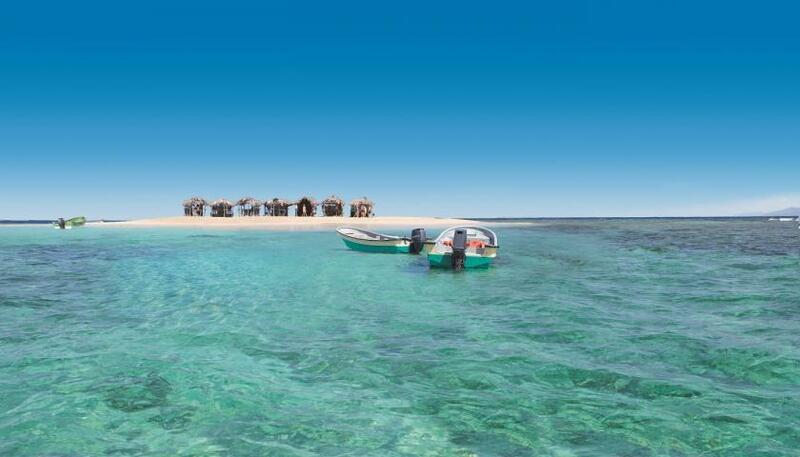
$ 5 m “PropteX” Program aims to support startups, innovation
Paragon Developments has teamed up with Adeer International, PMaestro alongside their German partner, QNTF, to ...

The Dominican Republic has its tourism sector on a path of sustainability, the government has pledged to reduce marine and land-based pollution, cut the consumption of materials, and diminish waste arising from tourism.
The new tourism plan, developed in collaboration with the United Nations Environment Program, includes ways to measure and reduce food waste, increase energy efficiency and promote the use of renewable energy in hotels and other accommodation options.
The roadmap sets five targets for the accommodation sector in the Dominican Republic: to reduce by 25 percent greenhouse gas emissions by 2030 (from a 2020 baseline), reduce food waste by half, a 25 percent of reduction in non-renewable energy use, the complete elimination of single-use plastics and the uptake of a sustainability certification for hotels.
It builds on two years of research, data collection and analysis, which helped identify hotspots of greenhouse gas emissions and low efficiency in the use of natural resources in hotel value chains. International travel was not part of the analysis.
The resulting Roadmap for Low Carbon and Resource Efficient Accommodation in the Dominican Republic was launched by UN Environment in May 2019, in Punta Cana. The event was attended by 75 representatives from the tourism sector.
The roadmap sets five targets for the accommodation sector in the Dominican Republic: to reduce by 25 per cent greenhouse gas emissions by 2030 (from a 2020 baseline), reduce food waste by half, a 25 per cent of reduction in non-renewable energy use, the complete elimination of single-use plastics and the uptake of a sustainability certification for hotels.
“This roadmap would not have been possible without strong cooperation between the public and the private sector,” says Olga Rosario, Director of the Sustainable Production and Consumption Department in the Ministry of Environment and Natural Resources. “It’s the first time they have collaborated to establish clear targets to achieve sustainable development for the tourism sector.”
The roadmap was also made possible through a project funded by the German Federal Ministry for the Environment, Nature Conservation and Nuclear Safety through its International Climate Initiative. Karsten Sach, Director-General, International and European Policy, Climate Policy, welcomed the recent developments in the Dominican Republic’s tourism sector.
“Supporting the formulation and implementation of countries’ nationally determined contributions to mitigate climate change is at the heart of the International Climate Initiative,” he says. “Proliferating sustainable patterns for consumption and production is key to transforming the tourism sector to low-carbon, resource-efficient operations. We are pleased that through the Initiative’s funding, we could contribute to those far-reaching regulatory and administrative changes in such a vital economic sector for the Dominican Republic.”
The analysis revealed that many environmental impacts related to tourism happen outside hotels. For example, 57 percent of greenhouse gas emissions of the tourism value chain are associated with farming for food served in the hotels. Energy used in cooling and air conditioning is the most significant source of emissions in the case of hotels.
Hotels will be required to eliminate single-use plastics in products and packaging by procuring more sustainable alternatives such as banana leaves, while chefs and hotel managers will be encouraged to adopt sustainable procurement practices when buying food. Sixty percent of hotels have already reduced single use plastic containers by using refilling systems.
In parallel, the government will enforce and enhance regulatory frameworks, create financial incentives for reducing pollution and improve waste management and recycling systems.
Through UN Environment United for Efficiency’s Caribbean Cooling Initiative, a new Cooling as a Service mechanism was launched to help hotels and other major users of air conditioning and refrigeration to better address rising cooling demand by adopting much more energy-efficient solutions. Rather than having to worry about procuring and maintaining equipment, end-users can simply sign a contract to pay for the amount of cooling they use, akin to similar contracts where organizations pay for the documents they print rather than purchasing and maintaining printers.
Another aspect of the roadmap includes a regulatory framework with standards and certification schemes (such as energy audits and rating schemes), the identification of energy-efficient products and services to encourage the procurement of energy-efficient equipment by tourism businesses, and the implementation of training and awareness-raising programmes in energy management and renewable energy.
“The study identifies opportunities to reduce the environmental impact of tourism while increasing its economic and social benefits,” says Leo Heileman, UN Environment Regional Director in Latin America and the Caribbean.
“The success of this roadmap lies in the active participation and firm commitment of the tourism sector. Hotels have pledged to take concrete action in line with the study’s findings, for instance, phasing out single-use plastics. This is an exemplary move,” Heileman added.
By adopting the roadmap, the Ministry of Environment and Natural Resources, together with the Ministry of Tourism, the Hotel Association of Playa Dorada, the National Council on Climate Change and the Ministry of Industry and Commerce confirm their commitment to reducing greenhouse gas emissions and developing a sustainable and resilient tourism sector.
Paragon Developments has teamed up with Adeer International, PMaestro alongside their German partner, QNTF, to ...
Crédit Agricole Egypt Foundation for Development and Schneider Electric have successfully concluded the Second Phase ...
The European Commission (EC) has decided to register a European Citizens’ Initiative (ECI) entitled ‘Save ...


اترك تعليقا